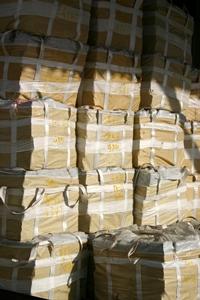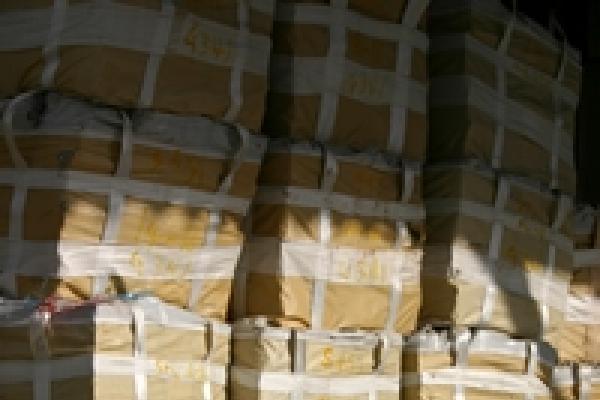
Steamship Mutual
Published: January 01, 2014

A recent London Arbitration has revisited the issue of liability in the face of stevedore incompetence. London Arbitration 18/13 considered owners’ claim for compensation from charterers where the charter put responsibility for stevedore negligence for owners’ account – owners advanced the perhaps familiar position that the stevedores had been incompetent, rather than negligent, which entitled them to compensation. Owners were successful.
The vessel was chartered on an amended Sugar Charter Party 1999 form, clause 14 of which provided:
“Stevedores FIOST
Stevedores for loading, stowing, trimming and discharging to be employed by Charterers or Shippers or Receivers at their expense and under Master’s control. Stevedores shall be considered as Owners’ servants, and the Charterers / Shippers / Receivers are not to be responsible for any negligence of whatsoever nature, default or error in judgement of the stevedores employed. Master to notify Charterers if stevedores do not adhere to his instructions and Charterers to use their best efforts to rectify the situation.”
(Amendments to proforma in italics.)
A cargo of 14,000 mt of bagged sugar was loaded in Brazil. At the discharge port the stevedores, employed by the port authority, used the ship’s cranes to discharge the cargo from the holds directly on to the receivers’ trucks on the quayside. Of 288,000 bags shipped, 226 were alleged to have fallen into the sea and 2,583 suffered damage, resulting in a total shortage of 1,553 bags or 0.55% of the cargo. During discharge, owners had issued 20 letters of protest. The stevedores were accused of theft, deliberate damage to the goods, bad handling, “negligent and careless handling” and “inefficient and incompetent discharge”.
Owners started arbitration to recover the cost of settling the consequent cargo claim plus survey and correspondents fees. Charterers denied liability on the basis that they were not under any implied obligation to employ competent stevedores, and that if they were the damage was attributable to negligence.
The tribunal relied on The Sinoe [1972]. That is, in accordance with clause 14 negligence on the part of the stevedores was for owners’ account, as there was an implied term in the contract that charterers would employ competent stevedores. The words “responsible for any negligence of whatsoever nature” did not stretch to include incompetence. The parties were free to stipulate that owners were responsible for all losses arising out of discharge, but they had not done so.
Charterers further argued that the stevedores employed were part of the state-owned port authorities, and so “selection” of competent stevedores was impossible under the present circumstances. The tribunal rejected this argument however; explaining that on a true construction of the charter, charterers had assumed the responsibility that it may have been impossible to secure the services of competent stevedores.
Given this analysis of the contractual position, it was left for the tribunal to establish whether factually the stevedores had been incompetent, or merely negligent. The tribunal noted that it was rare for a master to issue one notice of protest after another during discharge. There was a note of genuine conviction to these notices and none was marked with denials, reservations of rights or typical “For receipt only” qualifications. The stevedores had been using slings which cut into the bags, and instead of lifting them from the corners of the holds had deployed cranes to drag the bags into the centre of the holds before lifting, causing damage.
Further, whilst cargo was known to fall into the sea during discharge, the frequency here caused concern. The further intentional damage, and examples of stevedores putting bags of cargo directly into their cars, were not consistent with general standards of competency. “Incompetence” involved a conclusion that there was a consistent course of conduct falling below what would be regarded as satisfactory in all the circumstances [The Clipper Sao Luis (2000)]. The fact that less than 1% of the cargo had been lost had no bearing on the question of competence. If there was a distinction to be drawn between the ‘negligence’ and ‘incompetence’ it was this: ‘negligence’ was associated with a failure to carry out an expected task from time to time, ‘incompetence’ was associated with a course of conduct which revealed a continuing failure to live up to the expected standard.
Ultimately, the position is that competent stevedores may be negligent. If they were, charterers would be protected by clause 14. Incompetent stevedores may also be negligent, and charterers could again rely on clause 14. However, if it could be shown on the facts that the stevedores were incompetent, and that that incompetence caused a loss, owners would be entitled to bring a claim. It was open to charterers to show that some of the losses suffered by owners had been partly the consequence of negligence, and partly the consequence of incompetence, but as charterers had made no attempt to carry out such an apportionment, the tribunal thought it inappropriate to attempt to do so themselves.
Therefore, given that the stevedores were found to be incompetent, this superseded the issue of negligence, and owners were entitled to their claim in full.
Article by Oliver Goossens on secondment from MFB Solicitors


